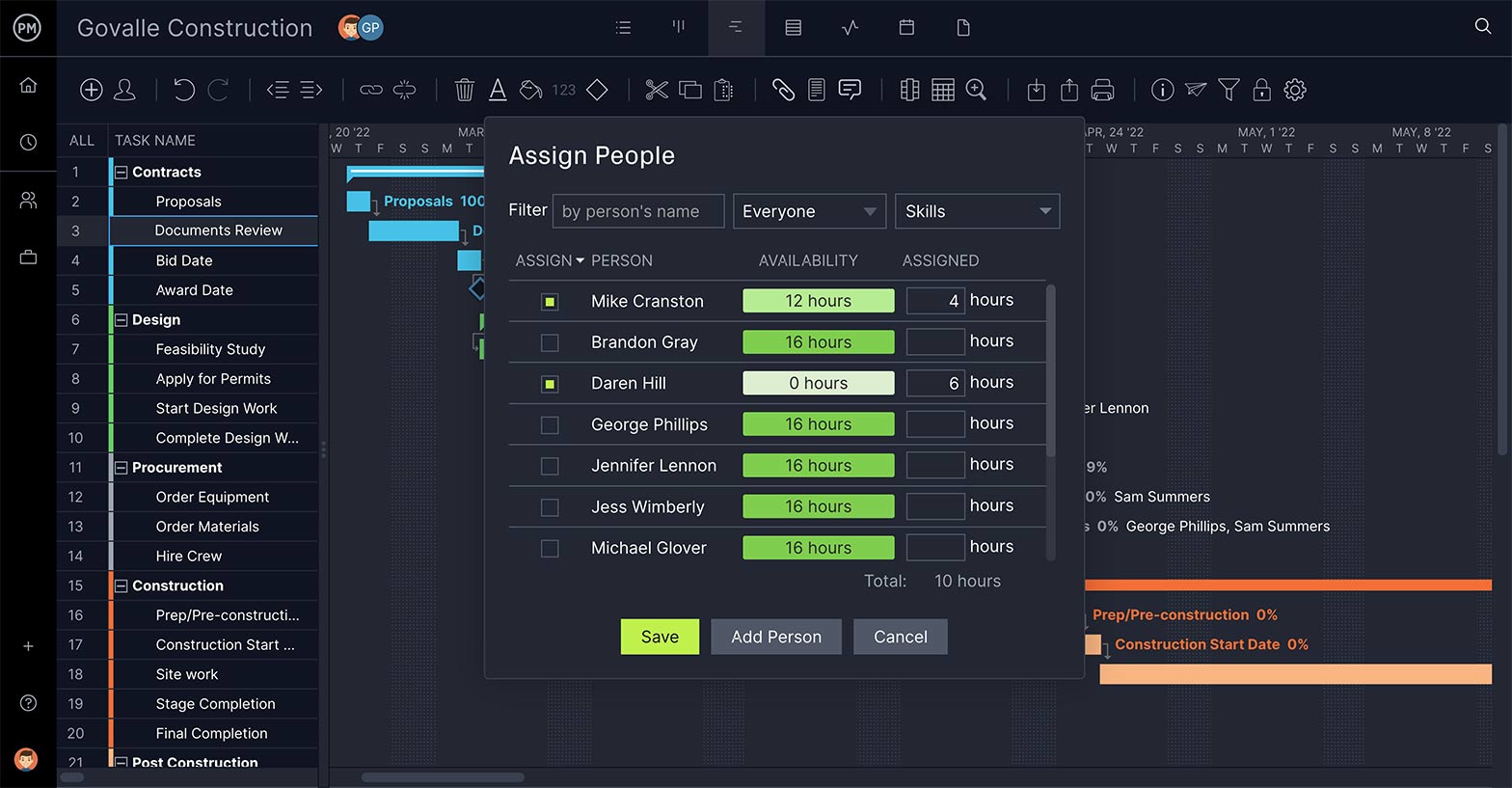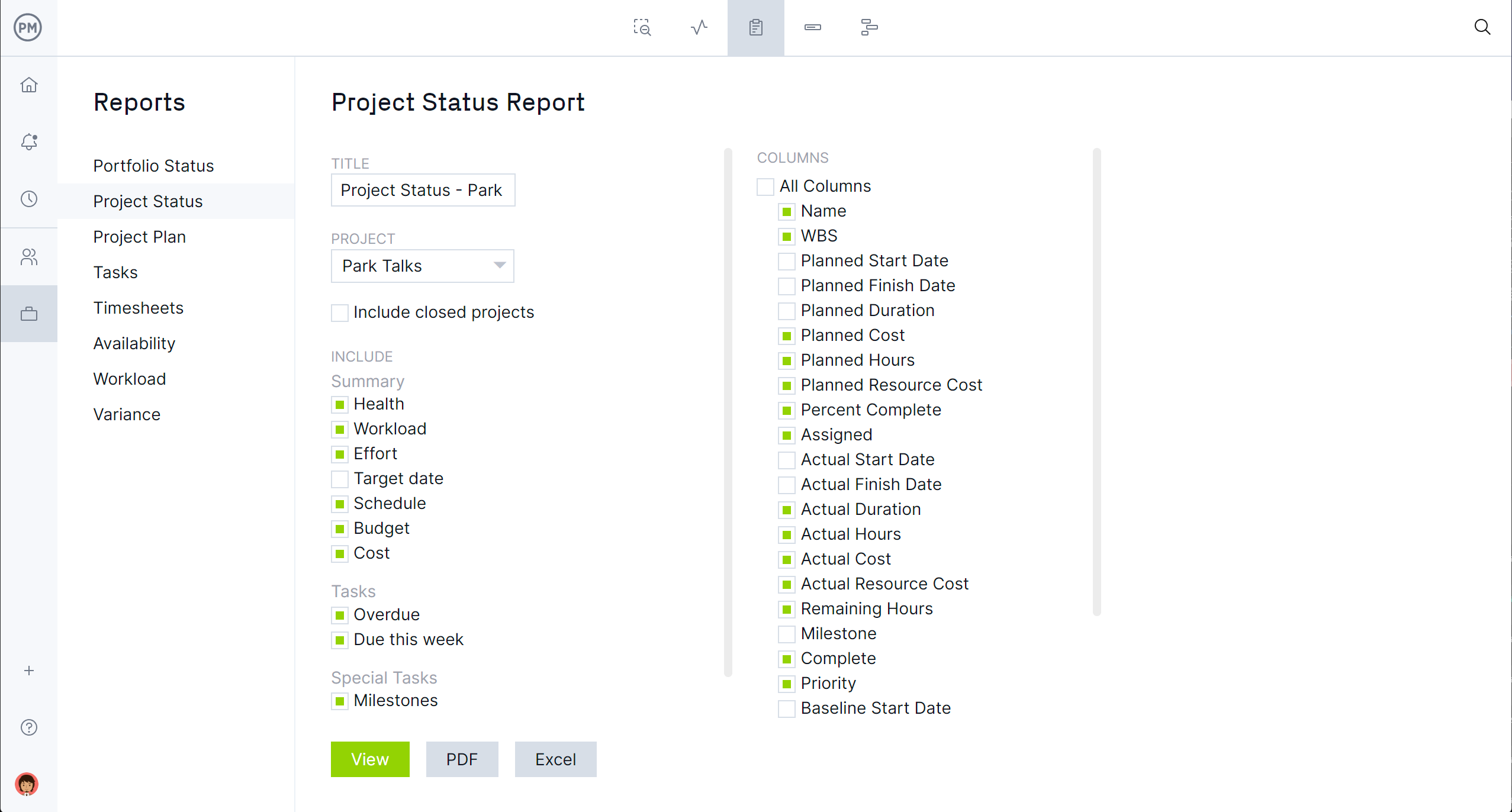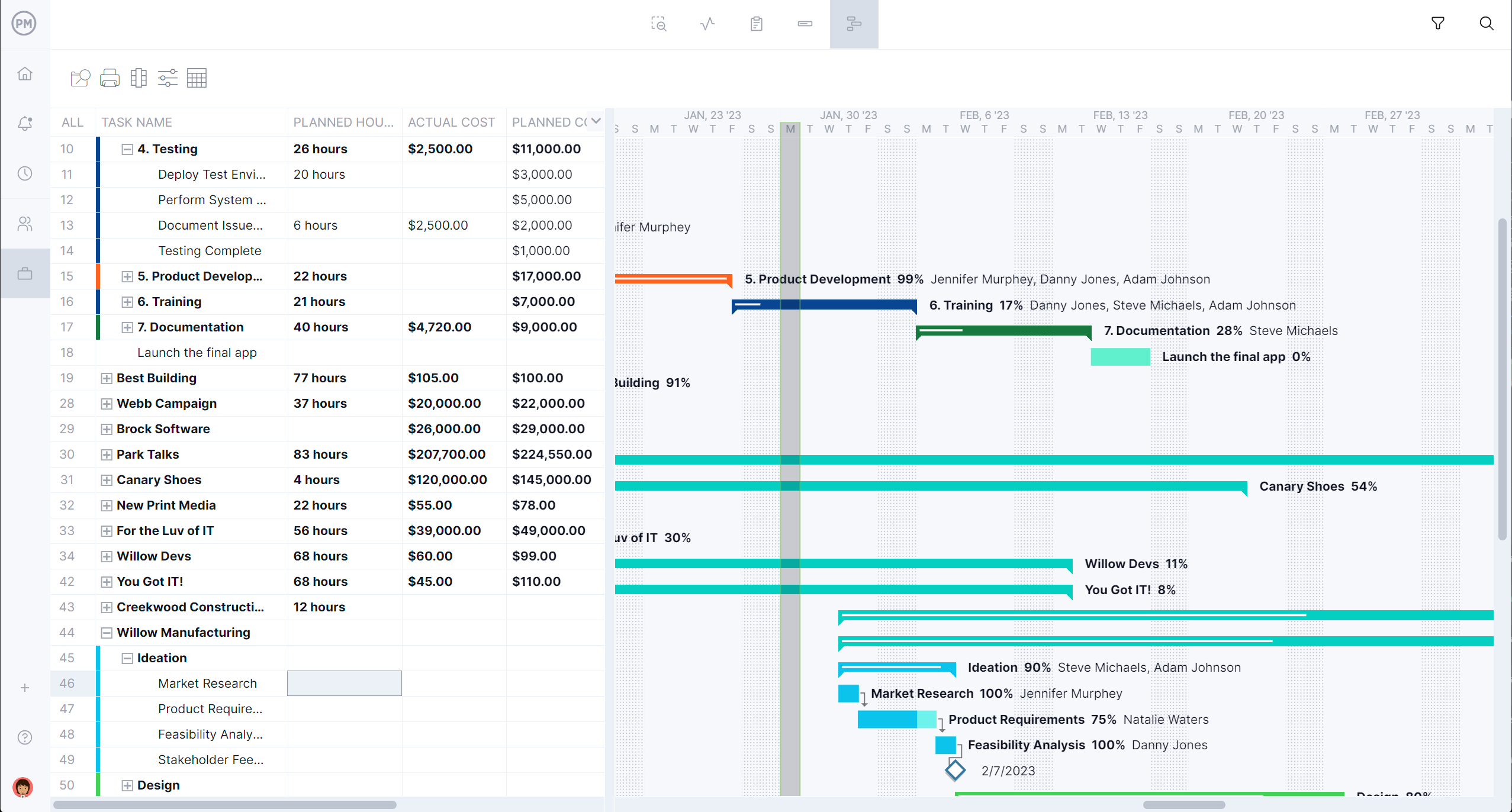Resources, such as people, materials and equipment, are needed to deliver projects. Being able to plan, manage and track those resources to meet the needs of a business is called project ERP or enterprise resource planning (ERP) project management.
There are software projects designed for project ERP, but before we get to that, let’s define the term and how it differs from traditional ERP solutions. We’ll look at the businesses that use project ERP and its key features before getting into the benefits of project ERP software.
What Is a Project ERP?
Project ERP is a type of enterprise resource planning that helps project-based businesses meet their needs. It identifies, wins, optimizes and delivers projects for a business in a manner that can be repeated successfully. In short, it’s an ERP that uses project management features.
Businesses use project ERP to manage various aspects of their business, from company finances to the customer journey, all in one centralized place. It provides a full view into processes, key performance indicators (KPIs) and other metrics. Unlike a traditional ERP, a project ERP is ideal for construction companies, project-based manufacturers and service-based organizations.
A project ERP can be expensive. When managing a project you can import timesheets to capture labor hours and costs into your ERP, but this is not the most efficient way to track those resources. Not only is it costly to get project financial and resource data, but there are data gaps. ProjectManager is award-winning project and portfolio management software with powerful integrations that fill the data gaps and tracks what you need to manage your projects more successfully. Get started with ProjectManager today by taking a free trial.

Project ERP vs. Traditional ERP Solutions
A traditional ERP has a variety of functionalities for manufacturing, accounting, customer relationship management (CRM), inventory management and more. However, a project ERP is concerned only with projects and resource management workflows.
Manufacturers with simple operations use a traditional ERP for straightforward production and overall finances. But if the business is complex, with many departments that need comprehensive analysis to stay competitive, a traditional ERP falls short.
Before ERP for projects, many businesses collect reports with spreadsheets or other systems to record milestones, timelines, fulfillment strategies and other more complicated planning tasks. A project ERP provides a centralized hub for all these project-based tasks, which increases productivity.
A project ERP collects and analyzes data from all project-based activities to track metrics such as labor costs, customer retention and inventory turnover. Having this visibility into project KPIs improves project planning, progress and collaboration.
What Types of Businesses Use Project ERP?
Project ERP applies to almost any industry. Certainly, any project-based organization will benefit from a project ERP. However, a few businesses gain the greatest advantage of using a project ERP system. We’ve listed them below and outlined how a project ERP helps them work more efficiently.
- Construction: Provides data across role-based dashboards, automation and data processing, compliance management, flexible drop-shipping to project sites and real-time communication.
- Manufacturing: Connects data, systems and processes in a single platform; meets production schedules with time-phased MRP and finite scheduling; reduces cycle time for faster fulfillment and improved quality.
- Consultants and Professional Services: Offers a single version of truth, multi-dimensional reporting, security by role, custom reports, personalized dashboards and multiple display options.
Key Features of a Project ERP
When looking for an effective project ERP that can help project-based businesses, there are key features that you’ll want to look for. The following features for your project ERP will help you increase productivity and profitability.
Project Management
A project ERP with project management software connects project operations with business outcomes. It allows you to manage custom data like project quotes and approvals, track purchase orders, receipts and expenses on tasks as well as gain key portfolio insights.
Accounting & Financial Management
This allows users to see the financial status of their projects. Accounting uses it to regularly capture project-related costs and revenue. It also provides more insight into operations through a financial reporting lens to determine whether projects have enough resources, go over budget or identify other financial risks.
Customer Relationship Management (CRM)
This project ERP feature helps users to manage, track and forecast opportunities with their customer base. It captures the complete customer data and history, including previous conversations, pitches and purchase history. It also acts as an order management portal by which customers can communicate directly with your team.
Human Resources (HR) & Payroll
Here a project ERP has tools to help with everything from recruiting, training and payroll to time tracking and attendance. Tools like timesheets and dashboards can be used to understand employee history and show HR trends. The data can then inform project managers when creating project workloads and see productivity levels and employee time off for labor forecasts. This can be used to help increase team productivity.
Inventory Management
Helps with shipping, purchasing, demand forecasting, inventory management and more. This is especially useful for tracking down raw materials or replenishing items. It also helps with supply chain management (SCM) and managing an iterative supply chain, simplifies business partner collaborations and provides visibility by tracking via barcodes, serial numbers, etc.
Sales Order & Purchase Order Management
A project ERP consolidates all purchase order data into a centralized database. This adds efficiency because users don’t have to manually enter data, which is also more likely to cause mistakes, so risk is also reduced. This provides real-time visibility into the status of sales and purchase orders.
Benefits of Using Project ERP Software
Here are only some of the benefits of using project ERP software.
Boosts Profits & Productivity
Project-based businesses value project ERPs for their ability to maximize productivity and revenue. The greatest return for a business is when corporate information and project financials work together to provide visibility and control throughout projects. Project ERPs streamline business development and talent recruitment. They also optimize resource utilization and identify problem areas and opportunities.
For example, rather than viewing a business’s overall financial standing, project ERP leverages project accounting tools to keep projects on budget through reporting and forecasting. Through project accounting, you can determine if the project is worth the time and money so you can cut your losses and uncover new opportunities.
Improves Resource Management
Project ERP also improves resource management. It shows which resources can be used for individual projects, such as helping to find which team members, machinery, tools, materials and other resources are needed to complete the project on time and within budget.
Most importantly, project ERP gives project-based KPIs, which are essential for measuring business and project health. Some project management KPIs that can be tracked include schedule adjustments, resource conflicts year over year, budget line items, cost performance index, customer complaints and employee churn rates.
Increases Productivity & Lowers Implementation Costs
A project ERP can boost productivity by automating many basic and recurring tasks so team members can focus on their important work. It also makes it faster to complete those tasks the team is assigned by making processes more straightforward and reducing the time they might spend looking for needed information. Visibility allows users to see how a process works rather than having to ask.
Increased productivity means having fewer team members assigned to tasks. That leads to team members with less to do who can then be assigned to other tasks that require their skills and experience.
If you’re using an online project ERP, it has lower implementation and maintenance costs, is easily scalable and accessible anywhere with the internet. There’s no investment in hardware or an IT staff to maintain the system.
ProjectManager Integrations Make a Robust Project ERP Solution
You can invest in a project ERP or integrate it with the tools you already use. Or you can get project data without busting the bank with ProjectManager, award-winning project and portfolio management software. Use our integrations to access project data like costs, hours and progress, so CFOs and other members of the finance team can get real-time visibility into expected cash flow across projects.
Leverage data to act on business insights, use operational and financial data to see how projects and portfolios are progressing and automate accounting & reporting tasks. Our software lets you generate financial reports, invoice billable hours and get expense insights while ensuring compliance and reducing financial risk.
Plan and Schedule Projects
Our software lets you build projects on robust Gantt charts that link all four dependencies to avoid costly delays. You can also schedule and plan your resources and costs, updating crucial project details from within your integrated tools. You can also use our tool for strategic planning, prioritizing strategic roadmaps by syncing data across systems. This includes all your tasks, timesheets and resources, which can be confidently prioritized within your portfolio.

Automate Accounting and Reporting Tasks
Another benefit of our software integrations is that they connect project-based operational data to your system, which allows you to create insightful reports, invoice billable hours and get details into your expenses. In fact, you can see expenses at the project level and capture revenue and costs in real time as well as reconcile spending and reduce errors related to manual entry. Get key portfolio insights and minimize data gaps to better allocate resources across your organization.

If you’re worried about security, our software is SOC 2 compliant, with SAML SSO and two-factor authentication. We also have a mobile app for iOS and Android. It’s ideal for managing construction and manufacturing projects, updating tasks, uploading photos and logging hours anywhere.
ProjectManager is online project ERP solution that tracks purchase orders, receipts and expenses on tasks. Generate financial reports, invoice billable hours, reconcile spending and eliminate errors related to manual entry in multiple platforms. Get started with ProjectManager today for free.


